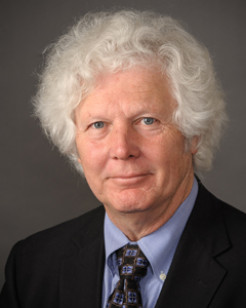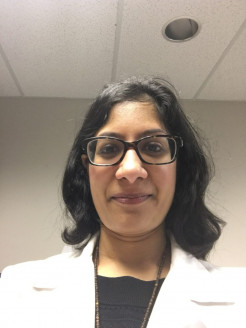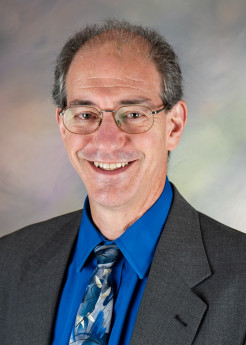Training is free and include CEUs
NADCP’s National Drug Court Institute (NDCI) is bringing world-class training to substance use treatment professionals working with justice-involved clients. These training programs, presented in partnership with the American Society of Addiction Medicine, are being offered in regional time zones and are open to both newcomers and seasoned professionals.
Whether you are an addiction therapist, mental health therapist, drug and alcohol counselor, social worker, clinical case manager, clinical supervisor, student, or just interested in foundational and advanced addiction treatment training, this program is for you!
Trainings are virtual for 2022. Spots are limited; enroll today!
Two-day training (12 continuing education hours, including 2.75 hours of ethics):
- August 15-16 (Eastern Time)
- October 5-6 (Pacific Time)
One-day training (6.5 continuing education hours, including 1.25 hours of ethics):
- August 25 (Pacific Time)
- September 26 (Eastern Time)
Who should attend: Treatment provider trainings are for anyone currently delivering or supervising the delivery of addiction treatment, co-occurring disorder services, or clinical case management to participants in treatment courts, on community supervision, or otherwise involved in the justice system.
NAADAC-accredited: NDCI training is accredited by NAADAC, the Association for Addiction Professionals.
When and where: Trainings are conducted virtually and are time-zone specific to meet treatment professionals’ needs. The training day is scheduled from 8:00 a.m. to 4:15 p.m.
Cost: Registration and all materials are provided without charge.
 David Mee-Lee, M.D.
David Mee-Lee, M.D.
Dr. David Mee-Lee is a board-certified psychiatrist and is certified by the American Board of Addiction Medicine. He has been the chief editor of all editions of the American Society of Addiction Medicine (ASAM) Criteria. He has more than 30 years of experience in person-centered treatment and program development for people with co-occurring mental health and substance use conditions.
 Terrence Walton, M.S.W.
Terrence Walton, M.S.W.
Terrence Walton is the chief operating officer of NADCP and among the nation’s leading experts in providing training and technical assistance to treatment courts. Prior to NADCP, he was director of treatment for the Pretrial Services Agency for the District of Columbia. Additionally, he is an internationally certified alcohol and other drug use counselor with more than 25 years of experience.
 Michael Clark, M.S.W.
Michael Clark, M.S.W.
Michael Clark has served as a probation officer and magistrate in Lansing, Michigan. He is a member of the Motivational Interviewing Network of Trainers (MINT) and is the director of the Center for Strength-Based Strategies, a technical assistance group serving the corrections, addictions, and mental health disciplines. He is also co-author of the book Motivational Interviewing with Offenders: Engagement, Rehabilitation, and Reentry.
 Helen Harberts, M.A., J.D.
Helen Harberts, M.A., J.D.
Helen Harberts has been working in criminal justice since 1983. As a prosecutor, she rose to become the chief deputy district attorney in Butte County, California. Then, as a chief probation officer, she implemented multiple treatment court programs. Later, she returned to her roots as a prosecuting attorney where she practiced law exclusively in treatment courts before retiring in 2011. In 2013, she was inducted into NADCP’s Stanley Goldstein Treatment Court Hall of Fame.
 Percy Menzies, M.S.
Percy Menzies, M.S.
Percy Menzies is the president of Assisted Recovery Centers of America, LLC, an outpatient center for the treatment of alcohol and drug addiction based in St. Louis, Missouri. He has served on various state and federal committees to develop policies and guidelines for the treatment of opioid and alcohol addiction and has conducted workshops in the U.S. and abroad on the advances in the treatment of substance use disorders.
 Ken Robinson, Ed.D.
Ken Robinson, Ed.D.
Dr. Ken Robinson is the president of Correctional Counseling, Inc. and is the co-developer of Moral Reconation Therapy™ (MRT), which is listed on SAMHSA’s National Registry of Evidence-based Programs. Prior, he was director of clinical services and crisis stabilization for the Midtown Mental Health Center in Memphis, Tennessee. He conducts frequent training and workshops on MRT in the U.S. and abroad. He has published and presented numerous professional articles in the areas of psychopharmacology and mental health.
 Soumya Pandalai, M.D., F.A.C.P., F.A.S.A.M.
Soumya Pandalai, M.D., F.A.C.P., F.A.S.A.M.
Dr. Soumya Pandalai is a board-certified physician in internal medicine and addiction medicine. She serves as an addiction specialist at Banner University Medical Center in Phoenix, Arizona. She provides both inpatient consultation services and outpatient treatment to persons with substance use disorders. She works with an interdisciplinary team of social workers, counselors, therapists, and other medical providers, which is an integral component of patient care given that many patients with substance use disorders have a complex set of medical, mental health, and psychosocial needs.
 Brian Meyer, Ph.D., L.C.P.
Brian Meyer, Ph.D., L.C.P.
Dr. Brian Meyer is a clinical psychologist and the PTSD/substance use disorders specialist at the H.H. McGuire Veterans Administration Medical Center and an assistant professor at Virginia Commonwealth University. He speaks nationwide on treatment of trauma and co-morbid conditions, substance use, complex trauma, the effects of trauma and substance use on families, veterans’ mental health, mindfulness meditation, secondary trauma, self-care, and treatment courts.
 Meghan Wheeler, M.S.
Meghan Wheeler, M.S.
Meghan Wheeler is the director of standards for NADCP, responsible for developing training, technical assistance, and tools to support the implementation of best practice standards for treatment court models. She also assists in the development of best practice standards. In her 18-year tenure with NADCP, she has also served as a project director and senior consultant. Prior, she managed the statewide treatment court implementation for the Supreme Court of Ohio, worked at the local level as a treatment court coordinator, and served as a counselor and clinical supervisor for a residential substance use treatment facility.
 Mark Panasiewicz, M.S.W.
Mark Panasiewicz, M.S.W.
Mark Panasiewicz is a veteran of the U.S. Air Force and a project director for NADCP. Prior, he served as a team member and group therapist/facilitator for the Keweenaw Bay Indian Community healing to wellness court in Michigan from 2011 to 2018. He has also been involved with the Tribal Law and Policy Institute since 2014. He is a licensed clinical therapist in both Wisconsin and Michigan and has experience as clinical director of an inpatient substance use treatment center.
This training is supported by the Office of National Drug Control Policy, Executive Office of the President.